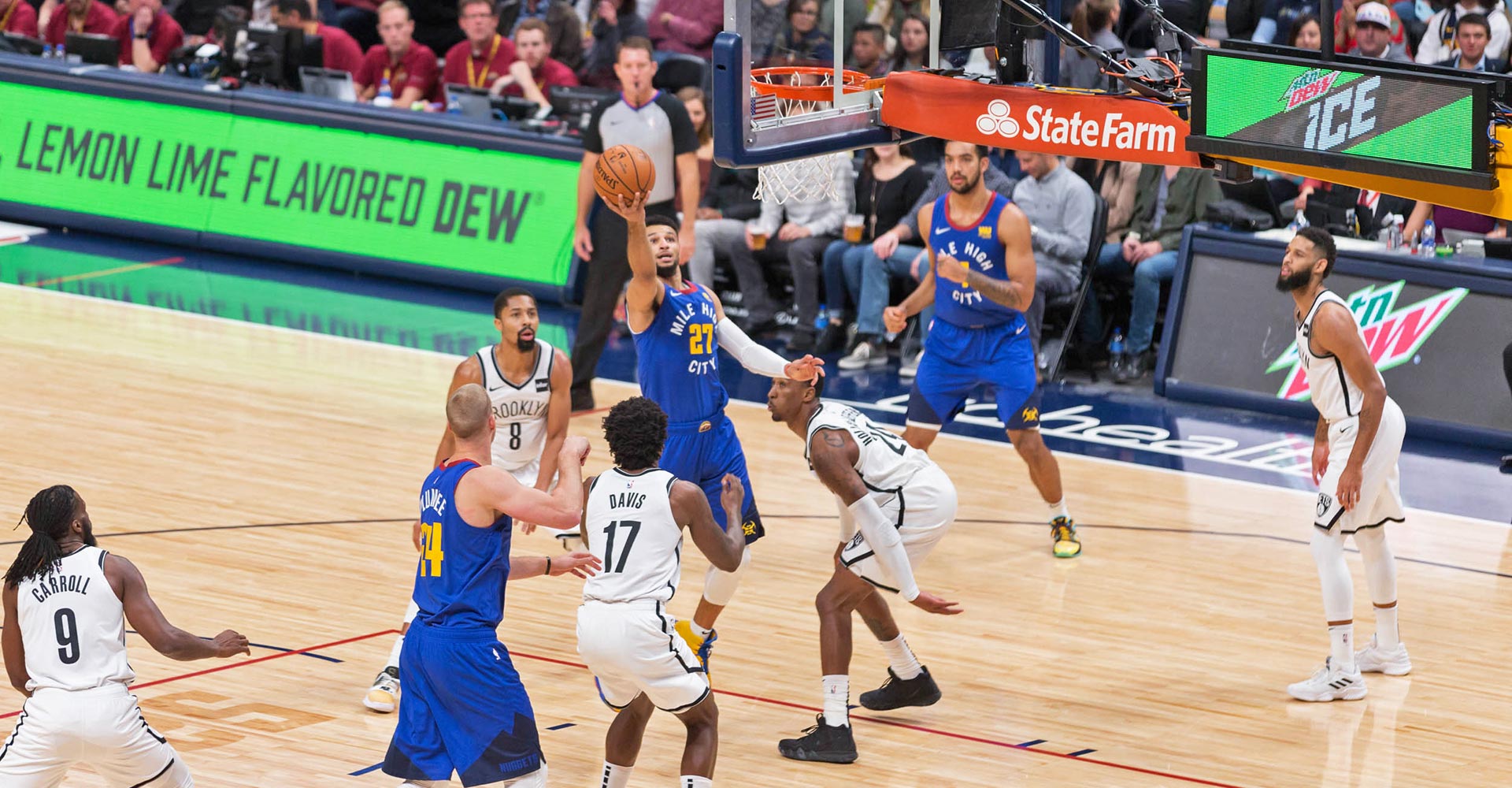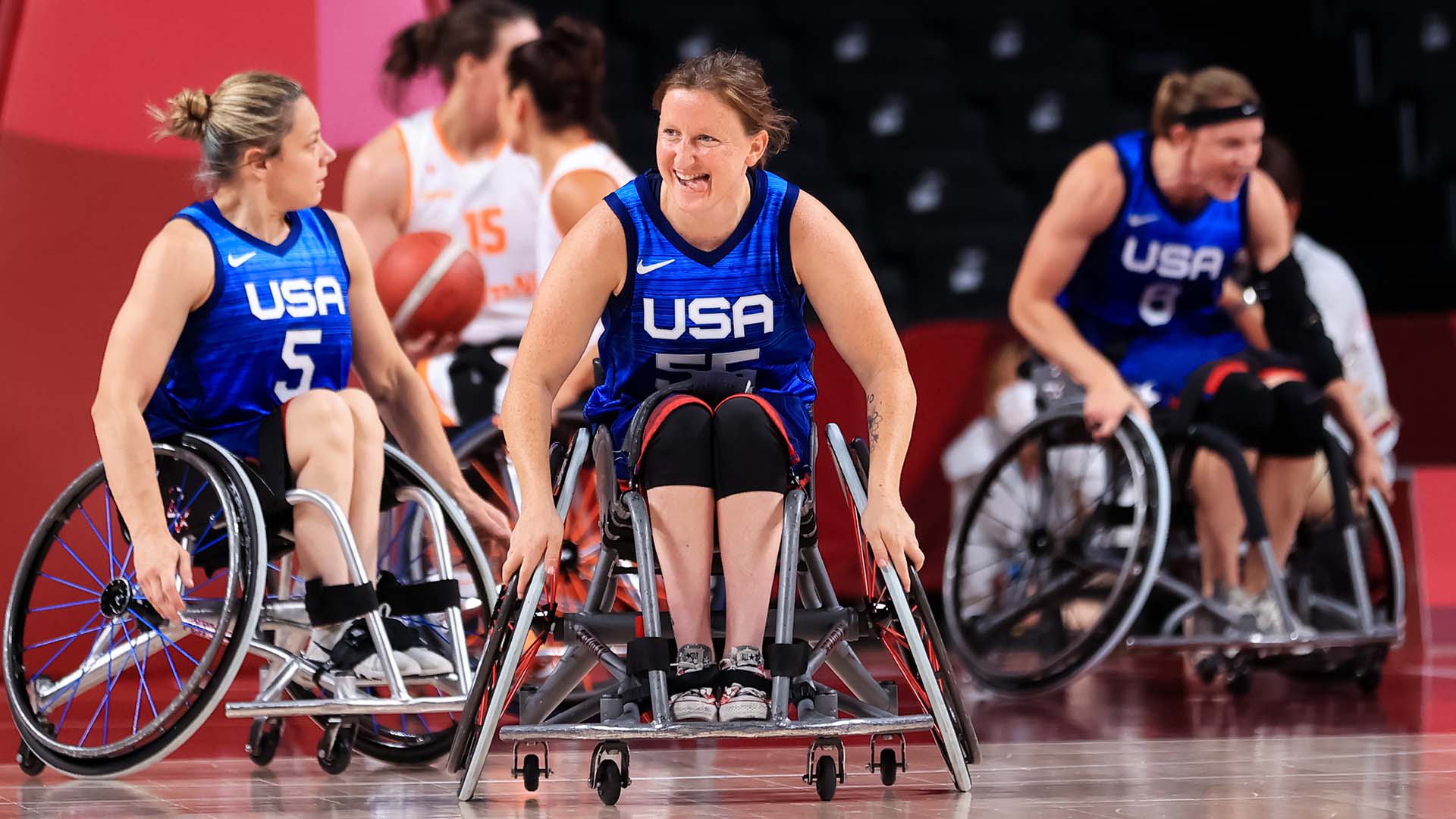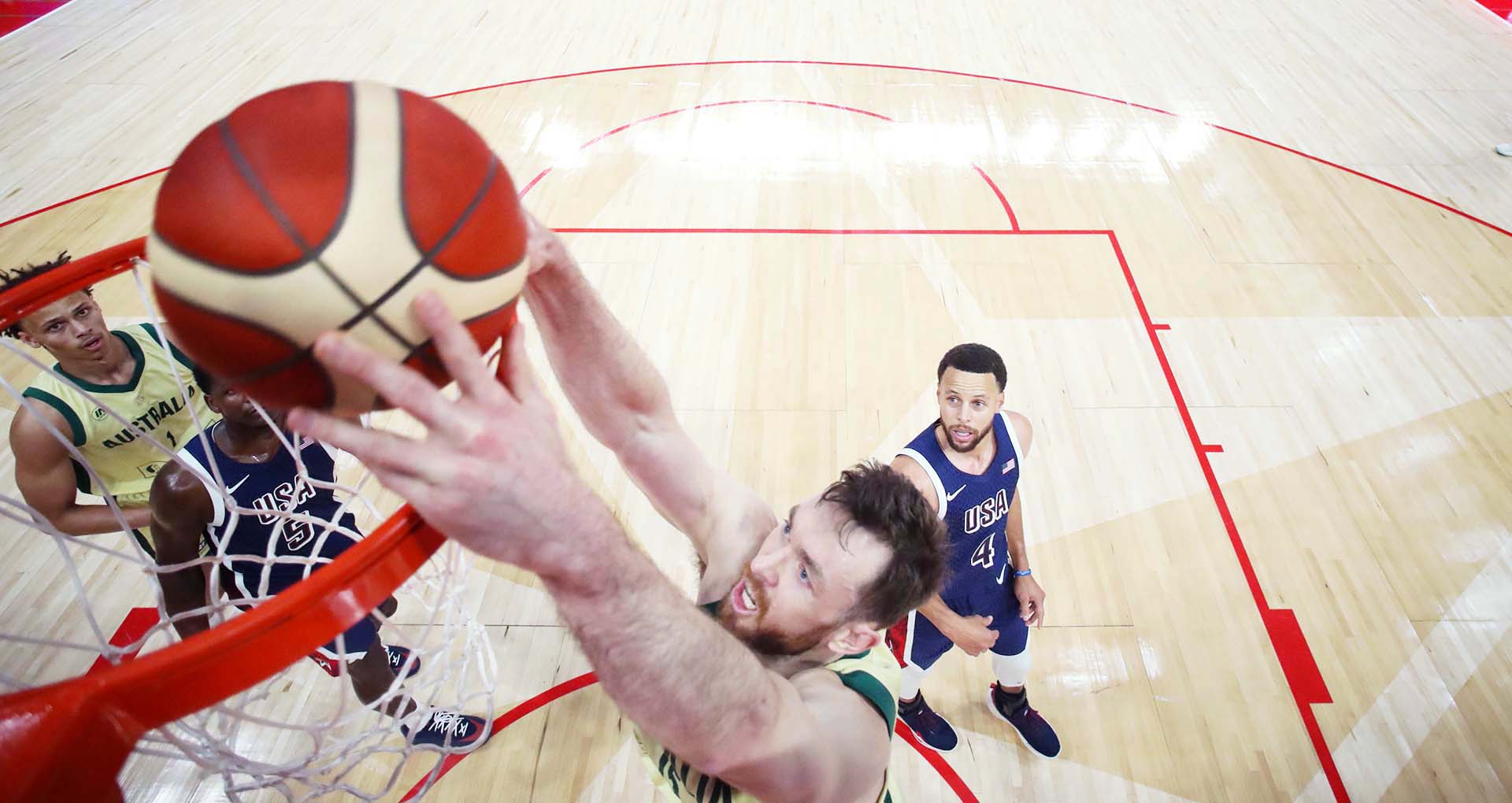Advantage, altitude: exploring the largest home advantage in sports
New research shows the Mile High City towers over other towns, but which teams benefit most? What can opposing teams do about it?

The Denver Nuggets are embracing their hometown’s sky-high altitude more than ever for the 2018-19 NBA season.
Not only are Jamal Murray, Gary Harris, Nikola Jokic and Co. running and gunning like it’s 1985, the squad’s new alternative uniform proudly puts Denver’s nickname, “Mile High City,” front and center, and the city’s elevation – 5,280 feet – is now emblazoned on the Pepsi Center hardwood at each free throw line.
But the Nuggets, who were 7 and 3 at home during the first month of the season, don’t just need to see their opponents huffing and puffing to know that their city’s thin air gives them an edge. Now, a new study shows that Denver has the largest home field advantage of any city in sports.
[Editor’s note: The Nuggets finished the season with the NBA’s best home record at 34-7, despite a losing record on the road.]
The study, “How often does the best team win? A unified approach to understanding randomness in North American sport,” used applied statistical research to determine that Denver-based teams have the largest home advantage in the NBA, the NFL and MLB as well as a top-10 advantage in the NHL. Researchers Michael Lopez, Gregory Matthews and Benjamin Baumer found that of teams in all four leagues, the Denver Nuggets had the largest estimated edge, with roughly a 67 percent chance at victory in the Pepsi Center against a team of equal ability.

Lopez, a Skidmore College (New York) professor and the director of data and analytics for the NFL, suggests that the Nuggets and Utah Jazz, who play at about 4,300 feet above sea level, have an outsize advantage thanks to altitude acclimation in a cardio-intensive sport.
“Take the NBA, where the difference between the best home advantage (Denver, Utah) and the worst (Brooklyn) is enormous. The estimates average out to be roughly 2.5 extra wins per year, in expectation, that Denver and Utah get that Brooklyn doesn’t, just by virtue of where the teams play,” he writes.
Lopez estimates those extra wins are worth in the neighborhood of $5 million annually to the high-altitude franchises, in a league with a salary cap around $100 million. It pays to play at altitude.

The psychology of home advantage
Beyond altitude, there are inherent benefits to playing at home for any team. Even the NBA team with the smallest home-court advantage, the Nets, is expected to win six of every 10 games in Brooklyn.
Shawn Worthy, MSU Denver professor of human services and NCAA faculty athletic representative, says regime consistency is key to athletic performance. Athletes who sleep in their own bed, practice at the same time and eat on schedule perform better on the playing field or in the arena as well.
“We know that consistency for athletes can yield benefits: pre-shot consistency, pre-swing consistency. There was this crazy stat for Tiger Woods during his peak for the time between when he began his putting routine and when he putted, and it was amazing that it varied so minutely,” Worthy said.
The home crowd also helps out the players at home.
“The crowd is reinforcing its team and punishing, from a psychological perspective, the other team. There’s evidence to suggest that has an impact,” Worthy said.
That impact isn’t limited to players, either.
“Consciously or subconsciously, the booing or cheering of calls has an impact on referees because they’re human beings,” Worthy said. “Any professional referee would say it doesn’t have an effect, but there is tremendous social pressure when you have a big crowd cheering or booing what you’re calling, so there tends to be a slight referee bias for the home team.”
Between the comfortability of playing at home and the reinforcement provided by home crowds and “home cooking” from referees, players are free to be more aggressive at home as well.
“There’s also animal nature – organisms tend to be more aggressive in their home environment. They’re territorial. That is likely the case for athletic teams also, where they’re protecting their turf. Aggression is the biggest impact for home-field advantage psychologically,” Worthy said.

Taking advantage of advantage
Like the Nuggets, who regularly appear among the NBA leaders in pace of play, MSU Denver’s men’s basketball team likes to take advantage of altitude acclimation by playing up tempo and running opposing teams out of the gym.
Roadrunners coach Michael Bahl, who is well-acclimated to the program in his second year as head coach after seven years as an assistant coach and four years playing for MSU Denver, says altitude is a big edge over teams from lower elevations.
“It gives our guys a psychological advantage,” Bahl said. “We train at 5,280 feet. We tell them they can run for days, whether they can or can’t. We say you’re not tired, and they say ‘OK coach.’”
Denver’s location plays a part in the home advantage too, as NBA coaches and players will tell you. The league has taken measures to reduce the number of times visiting teams finish long road trips in Denver, but there are no such provisions in Division II college basketball.
MSU Denver’s Rocky Mountain Athletic Conference travel partner for 2018-19 is Chadron State (Nebraska). That means RMAC teams will play the Roadrunners and Eagles on back-to-back nights, with a five-hour bus ride and 2,000-foot elevation difference in between.
“They have to do that overnight, so they don’t get in town until 2 or 3 in the morning. Breakfast is usually done at 10 a.m. so you’ve got to get up. Then you play at 7 that night, and when you play us, we’re pressing and coming after you,” Bahl said. “The travel is tough at our level.”
Come mid-January, New Mexico Highlands University will cross Colorado on a nine-hour journey to Chadron State for a 7:30 p.m. tipoff, then retrace the interstate for a 7 p.m. game at MSU Denver the next night. The Roadrunners plan to make sure the visitors can’t catch their breath.
At the pro level, teams in all sports often try to get to Denver as soon as possible before games to get used to the altitude.
Travis Heath, an associate professor of psychology at MSU Denver and former consultant for the NBA’s Minnesota Timberwolves, suggests that teams not go out of their way and psych themselves out.
“This was my advice when I was consulting for teams: use your same routine when you go to Denver. Or any place. Don’t do something out of the ordinary, because as soon as you start doing something out of the ordinary, then you’re falling into that psychological trap of believing that something is different,” he said.

On the road again
The unfortunate thing about home advantage is you can’t take it with you. Neither the Nuggets or the Rockies have ever won a league championship.
Bahl tries to prepare his players for the road by getting them out of their comfort zone ahead of time.
“A lot of it is how you practice and how you prepare. We try to throw different wrinkles, like practicing at a different facility. We’ll go to a local high school just to give them a different environment, or practice late in the afternoon instead of early morning to throw them off their routine,” Bahl said.
Worthy says regardless of strategy, it comes down to talent level when Denver teams have descended from altitude.
“When you’re playing in Denver, the other team has a deficit. When you’re playing at sea level, you might have a slight conditioning advantage, but the playing field is more equal, and then you just have to have a better team,” Worthy said.
“It’s like you’re Superman at home and Clark Kent on the road,” said Heath, whose advice for local teams is the same he’d give to teams visiting Denver: do what you do best.
“As soon as you do something different, you get your players thinking, ‘Uh oh, maybe there is something to this altitude thing,’” Heath said.







